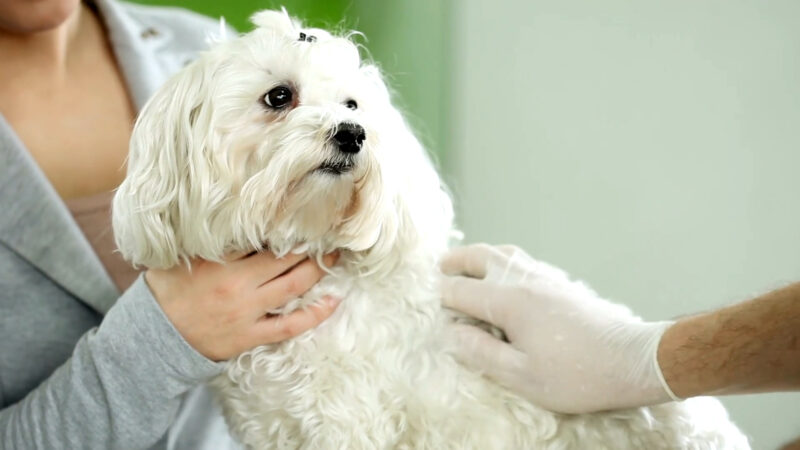When it comes to keeping our furry friends healthy and safe, one of the most crucial steps is ensuring they receive their rabies shots regularly. Rabies is not just a concern for pets; it’s a serious public health issue.
That’s because the rabies virus can affect both animals and humans, usually transmitted through bites or contact with infected saliva.
In this post, I will explain why staying on top of rabies vaccinations is vital for our dogs and the entire family.
Key Highlights
- Rabies vaccination is legally required and essential for all dogs, starting at 14-16 weeks of age, followed by regular boosters every 1-3 years.
- Vaccinations, including rabies, are safe for dogs, with most experiencing only mild side effects.
- Rabies is a deadly virus that can affect both animals and humans, making vaccination crucial for public health.
- Regular veterinary check-ups and maintaining an up-to-date vaccination schedule are vital for your dog’s health and well-being.
Why is This Vaccination Important?
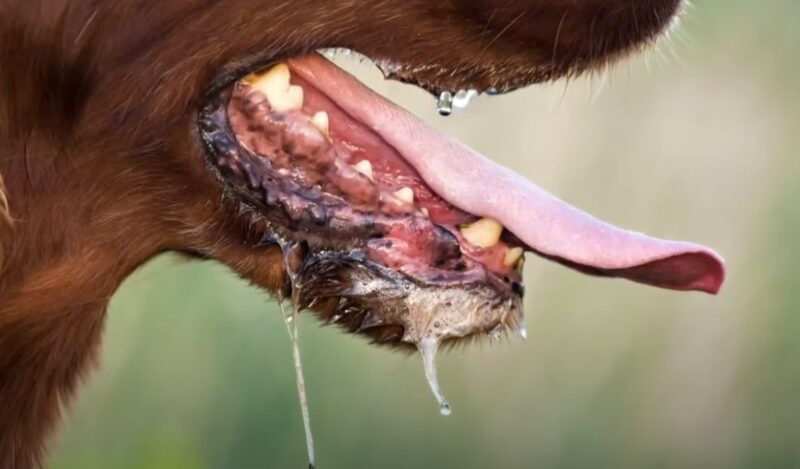
Rabies is a deadly virus that attacks the nervous system. Once symptoms appear, the disease is almost always fatal. For dogs, the rabies vaccine is not just a medical necessity; it’s a legal requirement in many places.
The reason is simple: vaccination protects not only the individual dog but also other animals and people by preventing the spread of the disease.
According to John E. Greenlee , MD, Rabies is a viral infection of the brain that is transmitted by animals and that causes inflammation of the brain and spinal cord. Once the virus reaches the spinal cord and brain, rabies is almost always fatal.
When Should Your Dog Get Rabies Shots?
Initial Vaccination and Boosters
Puppies receive their first rabies vaccine between 14 and 16 weeks of age. This initial shot is just the beginning. A booster follows a year later to ensure their immune system remains strong against the virus.
Keeping Up With Booster Shots
After the first year, how often your dog needs a rabies booster depends on two main factors: the law in your state and the type of vaccine used. Typically, dogs must have rabies booster shots every 1-3 years.
Why Boosters?
Booster vaccines are essential. They keep your dog’s immunity against rabies strong over time. Without these boosters, their defense against the virus wanes, putting them at risk.
Are Rabies Shots Safe?
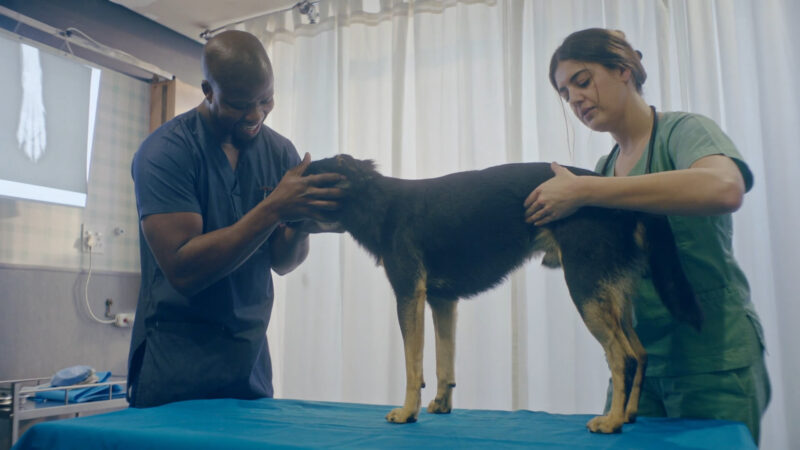
Vaccines, including the rabies vaccine, undergo rigorous testing to ensure they are safe for your pet. Most dogs experience only mild side effects, such as soreness at the injection site or a bit of tiredness.
Still, on rare occasions, more serious reactions can occur. If your dog shows signs of severe discomfort or allergic reactions, like vomiting or difficulty breathing, contact your vet right away.
What Else Should You Know?
Legal and Health Must-Have
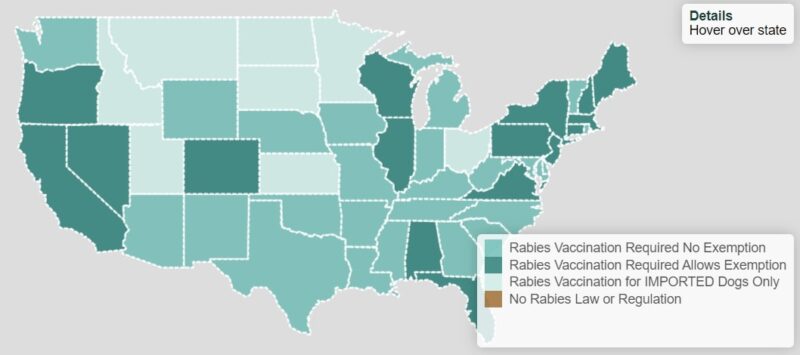
In many states, vaccinating dogs against rabies is the law. This requirement underscores the vaccine’s role in public safety. Rabies vaccines are available in one-year or three-year versions, depending on the formulation and legal requirements.
Core Vaccines Beyond Rabies
Rabies shots are part of the “core” vaccine group every dog should receive, which also includes protection against parvovirus, distemper, and adenovirus.
These diseases, like rabies, pose serious risks to dogs’ health, making vaccinations critical.
Monitoring Immunity
Veterinarians can perform titer tests to measure a dog’s immunity levels. These tests can help determine if and when a booster is necessary, ensuring your dog remains protected without unnecessary vaccinations.
Recognizing and Responding to Side Effects
While serious side effects are rare, being vigilant about your dog’s reaction after a rabies shot is essential. Quick action can prevent more severe health issues.
The Role of Non-Core Vaccines
In addition to the core vaccines every dog needs, there are non-core vaccines recommended based on a dog’s exposure risk, lifestyle, and environment.
These vaccines protect against diseases like Lyme disease, kennel cough, and leptospirosis. Discussing your dog’s daily activities and exposure risks with your veterinarian will help determine which non-core vaccines are necessary for their protection.
Side Effects of Vaccination and What to Expect
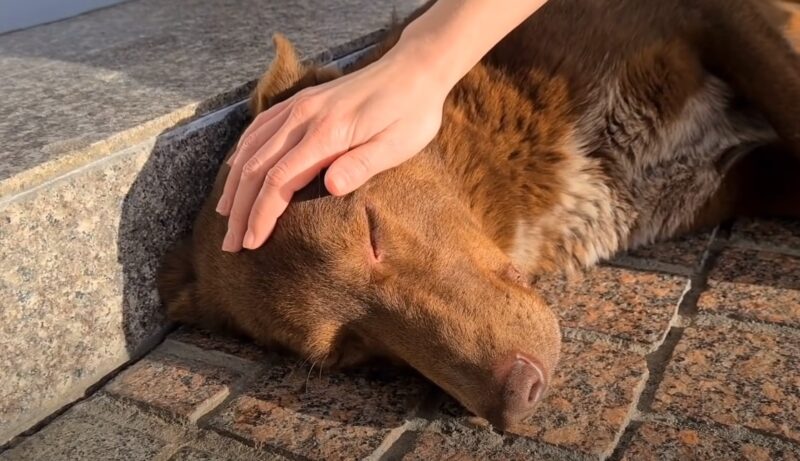
Most dogs handle vaccinations well, with only minor side effects. Common reactions include:
- Slight tiredness or lethargy
- Discomfort or soreness at the injection site
- Mild swelling
These symptoms typically resolve within a day or two. Monitoring your dog after vaccination for any signs of discomfort is important, but remember, the benefits of vaccination far outweigh the risks of these mild side effects.
Regular Veterinary Check-Ups Are of the Essence
Regular veterinary check-ups play a pivotal role in your dog’s health regimen, alongside timely vaccinations. These visits allow your veterinarian to assess your dog’s overall health and detect any potential health issues early.
During these check-ups, you can also discuss your dog’s vaccination schedule, including rabies shots, to ensure they remain up-to-date.
Keep in mind that prevention is always better than cure, and regular vet visits are essential for keeping your dog healthy.
FAQs
How often do dogs need rabies shots?
Dogs need a rabies vaccine at 14-16 weeks, a booster after one year, and then every 1-3 years, depending on legal requirements and the vaccine type.
Can my dog still get rabies after vaccination?
While highly effective, no vaccine is 100% foolproof. However, vaccinated dogs have a significantly lower risk of contracting rabies.
What are the signs of a serious reaction to the vaccine?
Look for symptoms like vomiting, diarrhea, severe swelling, and difficulty breathing, and seek veterinary care immediately.
Can indoor dogs skip rabies vaccinations?
No, indoor dogs must also be vaccinated against rabies, as they can still be exposed to the virus, for example, through a bat entering the home.
Is there a rabies vaccine for puppies under 12 weeks?
No, puppies under 12 weeks are usually not vaccinated for rabies due to age-specific vaccine safety and efficacy guidelines.
Can human beings receive rabies vaccinations?
Yes, rabies vaccinations are available for humans, especially those at high risk of exposure, like veterinarians and animal handlers.
Do rabies shots hurt dogs?
Dogs may experience brief discomfort during the injection, similar to humans receiving a shot, but it’s quick and pain usually subsides fast.
Will my dog be quarantined after receiving the rabies vaccine?
No, dogs are not quarantined after receiving a rabies vaccine. Quarantine is for dogs that have bitten someone or are suspected of having rabies.
If my dog’s rabies vaccine is overdue, is it still effective after administration?
Yes, but you should not delay getting the vaccine. Overdue vaccinations should be administered as soon as possible to maintain protection.
Concluding Thoughts
Rabies vaccination is a key part of responsible pet ownership. It safeguards not only your dog but also your family and community from a potentially fatal disease.
Follow the recommended vaccination schedule, and you can ensure your dog enjoys a happy, healthy life. Always consult with your veterinarian to make the best decisions for your pet’s health care.
